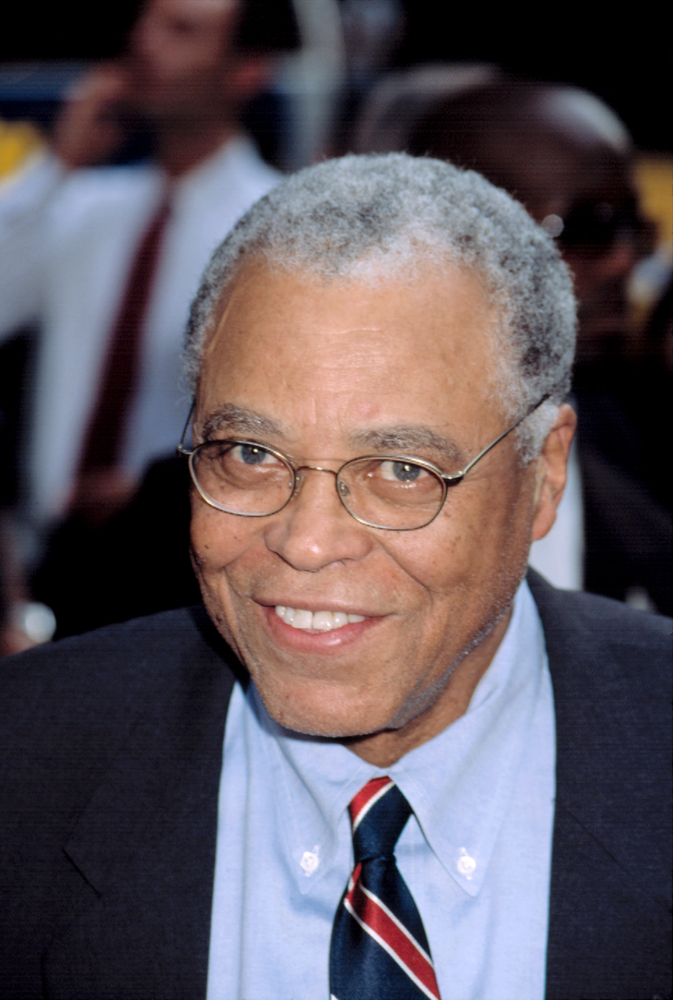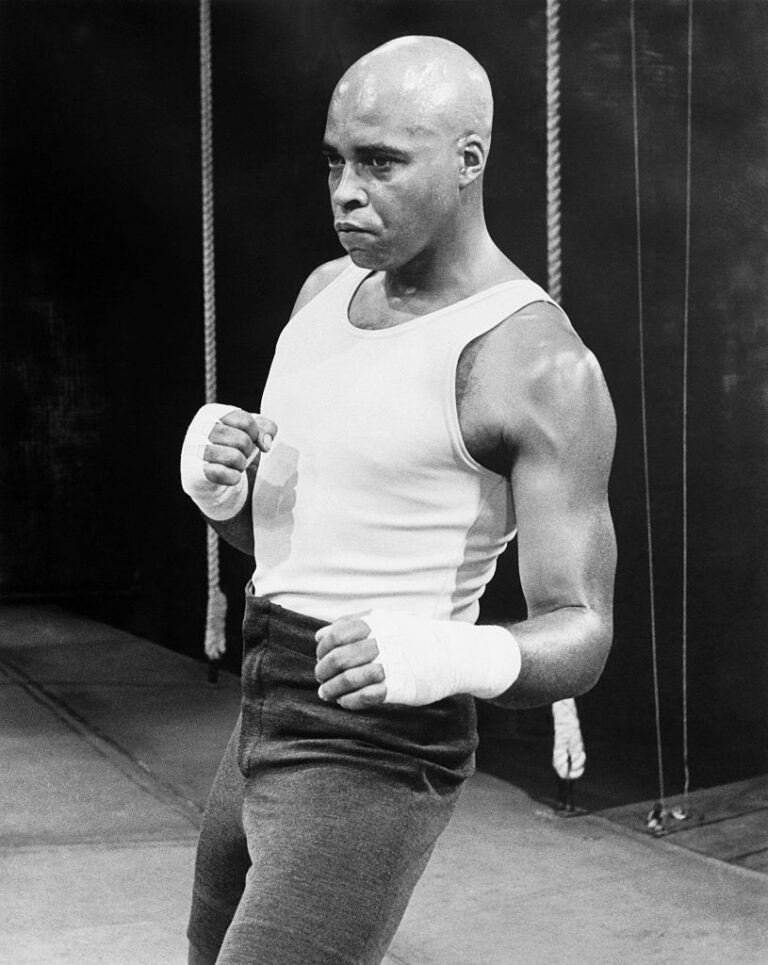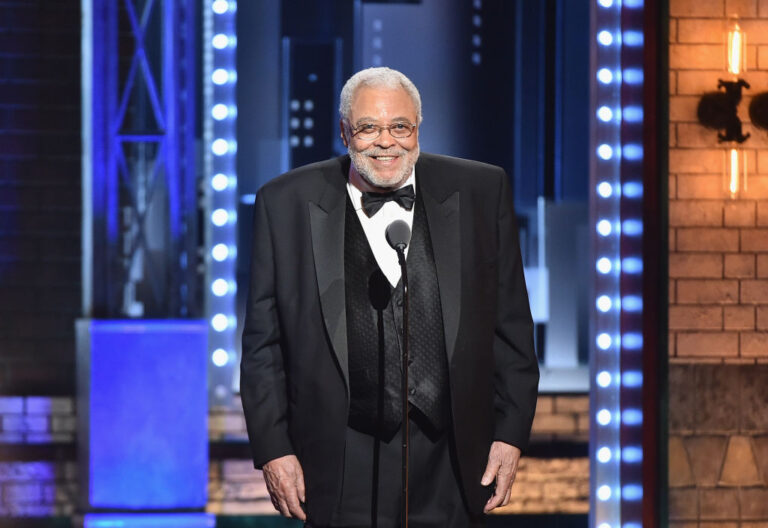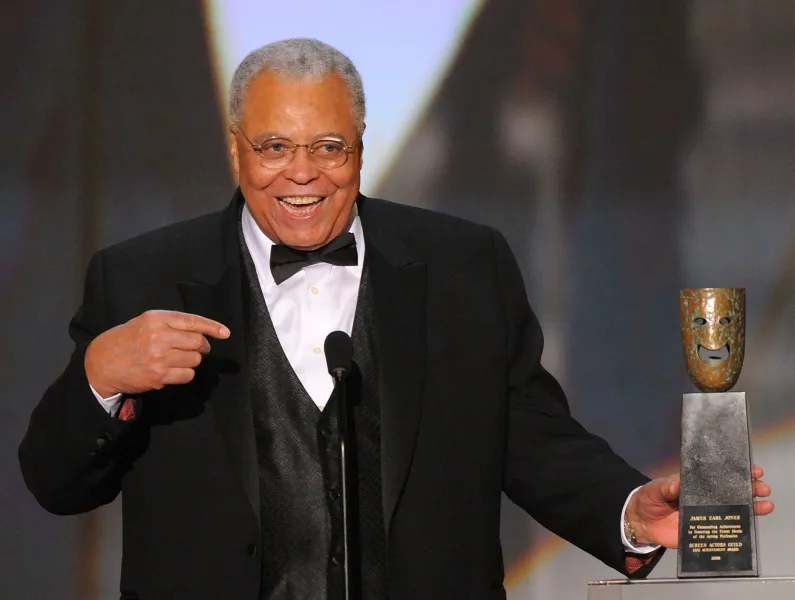
James Earl Jones, the beloved stage and screen actor who lent his iconic, deep voice to Darth Vader in Star Wars and Mufasa in The Lion King, has died at 93.
Regarded as one of the best actors of his generation, Jones’ career spanned Shakespeare to Hollywood hits. He is one of the few actors to have won an Emmy, Grammy, Oscar, Tony Award.
The actor’s death was reported by Deadline, via his representatives at Independent Artist Group.
James Earl Jones was born January 17, 1931 in Arkabutla, Mississippi and raised by his grandparents in Dublin, Michigan. While he would later become one of the most famous voices in the world, he says he suffered from a stutter in his youth.

“I was a stutterer. I couldn’t talk,” Jones recalled in a 1996 interview. “So my first year of school was my first mute year, and then those mute years continued until I got to high school.” A teacher encouraged him to overcome his stutter by reading poetry aloud.
Jones served in the US Army during the Korean War, and after decided to pursue a career in acting. He studied at the American Theatre Wing, working as a janitor to support himself. By the 1960s, Jones was establishing himself as one of his generation’s great Shakespearean actors, playing roles like Othello and King Lear. He also made his film debut in Stanley Kubrick’s classic 1964 comedy Dr. Strangelove, as bombadier Lt. Lothar Zogg.

In 1967, he played a boxer in The Great White Hope, winning the Tony Award for Best Actor in a Play. He reprised the role in the 1970 film version, receiving his first Academy Award nomination.
Amidst all his acclaimed acting work, Jones soon landed his most well-known and iconic role — one where he didn’t even have to appear on set: voicing the villainous Darth Vader in Star Wars. While Vader was played in costume by David Prowse, Jones dubbed over the lines with his own deep bass voice, helping to create one of the most famous characters in movie history.
While Jones originally opted to go uncredited for the role, it has become perhaps his most famous performance. He continued to voice Vader for decades, in the two sequels The Empire Strikes Back and Return of the Jedi, the prequel Revenge of the Sith and the spin-off Rogue One. In 2022, Jones retired from the role, but signed an agreement for his voice to be used in future projects using artificial intelligence and archive recordings.

Jones also provided the voice of another beloved movie character, Mufasa in the 1994 Disney film The Lion King. Jones later reprised the role in the 2019 remake.
Throughout the ’80s and ’90s, Jones appeared in many Hollywood films, including Conan the Barbarian, Coming to America, Field of Dreams, and The Hunt for Red October, Patriot Games and The Sandlot. He also won his second Tony Award, starring in the original production of August Wilson’s Fences.
He received eight Emmy Award nominations for his television work, winning twice in 1991: Outstanding Supporting Actor in a Limited Series or Movie for Heat Wave and Outstanding Lead Actor in a Drama Series for Gabriel’s Fire.

Jones also continued to perform on Broadway: over the past 20 years he starred in revivals of On Golden Pond, Cat on a Hot Tin Roof, Driving Miss Daisy, The Best Man and You Can’t Take it With You.
Jones was the recipient of many awards and honors throughout his acclaimed career. He received an Honorary Academy Award in 2011, making him one of the only people to have won an Emmy, Grammy, Oscar and Tony Award, known as “EGOT.” Broadway’s Cort Theatre was renamed the James Earl Jones Theatre in his honor in 2022.
Rest in peace to the iconic James Earl Jones, one of the greatest actors of our time — please share this
Sharon Stone, 66, stuns in a bikini as fans notice a surprising detail that sparks buzz.
At 66, Sharon Stone continues to captivate audiences with her timeless beauty and confidence. In a recent selfie, the Hollywood icon showed off her stunning figure, and fans couldn’t stop gushing over her natural allure. But beyond her radiant appearance, eagle-eyed followers noticed a charming detail in the background that had everyone talking.
A Star Who Only Gets Better with Time
Born in Pennsylvania, Stone has long been celebrated as one of Hollywood’s most daring and dynamic actresses. Known for unforgettable roles in classics like Basic Instinct (1992) and Casino (1995), the award-winning actress has never shied away from taking risks—on-screen or in life.

Reflecting on her Basic Instinct role in Vanity Fair, she once said, “It’s about more than just a peek up my skirt, people. Wake up. Women championed that movie; men were obsessed.” She added, “I wasn’t the chosen one or the golden gal, just the sex symbol who could sometimes land the key part if she also happened to be sexy.”

But Stone’s career spans far beyond her femme fatale image. From comedies like The Muse to action-packed roles in The Quick and the Dead and Total Recall, she’s proven herself as a versatile actress. Even after nearly five decades in the spotlight, the mother of three adopted sons continues to inspire fans with her talent and tenacity.
Staying Bold and Beautiful
Stone has never been afraid to flaunt her fit physique. In June 2022, she posted a daring poolside photo to Instagram, where she posed topless, draped in a Turkish towel, and wearing a green leopard-print bikini bottom. Her caption, “Gratefully Imperfect on a Perfect Day,” resonated with fans, earning over 295,000 likes and countless compliments.

“Beautiful lady and a great example for all women,” one admirer wrote. Another chimed in, “Imperfect? No way! You’re a total goddess!”
The Secret to Her Glow

When asked about her health and fitness routine, Stone shared with Vogue that she prioritizes mindful living. Her regimen includes eating nutritious meals, getting eight hours of sleep, and staying active. “I just keep moving,” she said. “I do leg lifts and back kicks on set, and sometimes I drop down to do jackknives.”
Stone also incorporates weighted bracelets and still uses the iconic ThighMaster, made famous in the 1990s. “It’s amazing! I can use it while watching TV, and it’s super easy to pack.”
Beyond physical health, the Diabolique star credits mindfulness and meditation for her emotional well-being. A practicing Tibetan Buddhist, she emphasizes balance and self-awareness. “Pleasure is fleeting, but happiness can last much longer,” she shared, adding, “If you find yourself too wrapped up in indulgences, it might be time to take a step back.”
A Sweet Surprise
In mid-2023, Stone shared another striking photo wearing the same green bikini, this time paired with a matching top.
Fans admired her confident look and caught a glimpse of her stylish Beverly Hills home, complete with a leaf-patterned couch, a coffee table stacked with books, and a framed portrait of Marilyn Monroe.
But what truly stole the show was her French Bulldog, Bandit, peeking out from behind a pillow. The pup, adopted in 2018, blended so perfectly with the decor that some followers almost missed him.
“Your dog!” one fan exclaimed. Another joked, “Haha, did you see his expression? It’s like he’s thinking, ‘Another picture?’”
Timeless Inspiration
Whether sharing bold selfies or tender moments with her furry companion, Sharon Stone continues to be a source of inspiration at 66. Her fearless approach to life and self-love resonates with fans of all ages.
What do you think of Sharon Stone’s timeless charm? Share this story and join the conversation!



Leave a Reply